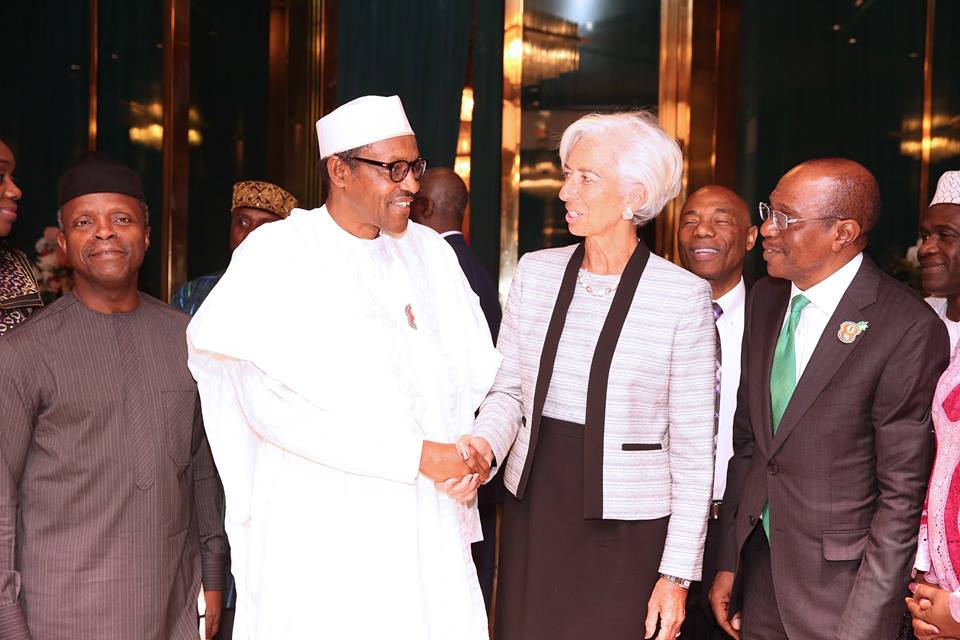- Nigerians Are Getting Poorer, Says IMF
Nigeria’s people are getting poorer despite the country’s slow recovery from the recession and economic reforms are urgently needed, the International Monetary Fund has said.
The Fund expects the government to “muddle through” in the medium term, and any progress could also be threatened if elections next year consume political energy and resources, it said in a report seen by Reuters on Wednesday.
Since emerging from recession in the second quarter of 2017, Nigerian officials have repeatedly boasted that they have set the economy back on track.
But critics say much of the recovery comes from a return to oil dependence after a rise in global oil prices and a rebound in crude production, more the result of militants in the Niger Delta halting attacks on oil facilities than of economic policy under President Muhammadu Buhari’s administration.
The IMF said in the report that the outlook for growth had improved but remained challenging.
“Comprehensive and coherent” economic policies “remain urgent and must not be delayed by approaching elections and recovering oil prices,” it stated in its annual Article IV review of Nigeria’s economy.
“Higher oil prices would support a recovery in 2018 but a ‘muddle-through’ outlook is projected for the medium term under current policies, with fiscal dominance and structural constraints leading to continuing falls in real GDP per capita,” the IMF added.
In the report, it identified risks to growth, including additional delays to implementing policies and reforms ahead of the 2019 elections, security tensions, and oil prices, a fall in which could see capital flows reversed.
“Further delays in policy action, including because of pre-election pressures, can only make the inevitable adjustment more difficult and costlier,” the report added.
The lender repeated its call for Nigeria to simplify its complex foreign exchange system, a bugbear for the IMF for more than a year, which has left large gaps between official rates and various windows that certain groups can use to get other rates.
“Moving towards a unified exchange rate should be pursued as soon as possible. The IMF staff does not support the exchange measures that have given rise to the exchange restrictions and multiple currency practices,” it stated.
The Fund further singled out the central bank, saying it should discontinue direct interventions in the economy.
The Central Bank of Nigeria frequently injects hundreds of millions of dollars into the foreign exchange market to keep its own rates stable.
Commercial banks struggling to remain solvent were also called out, but not identified by the IMF, including one that the lender said was already insolvent, adding, “Some of these banks are kept afloat through continuous recourse to the CBN’s lending facilities.”
The IMF said it would not comment on purported leaks. A spokeswoman for the Fund said a statement would be issued after the lender’s board’s meeting to discuss its assessment on Friday.
A spokeswoman for the Federal Ministry of Finance did not immediately respond to a phone call and email requesting comment.

 Naira4 weeks ago
Naira4 weeks ago
 Naira4 weeks ago
Naira4 weeks ago
 Travel3 weeks ago
Travel3 weeks ago
 Jobs4 weeks ago
Jobs4 weeks ago
 Naira3 weeks ago
Naira3 weeks ago
 Naira3 weeks ago
Naira3 weeks ago
 Investment4 weeks ago
Investment4 weeks ago
 Travel4 weeks ago
Travel4 weeks ago




























